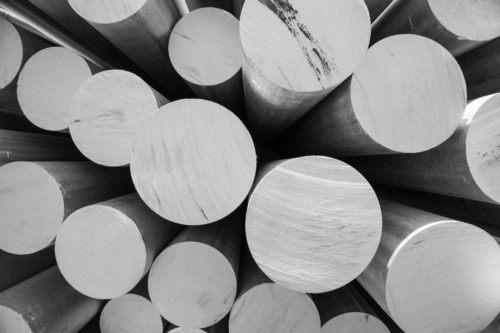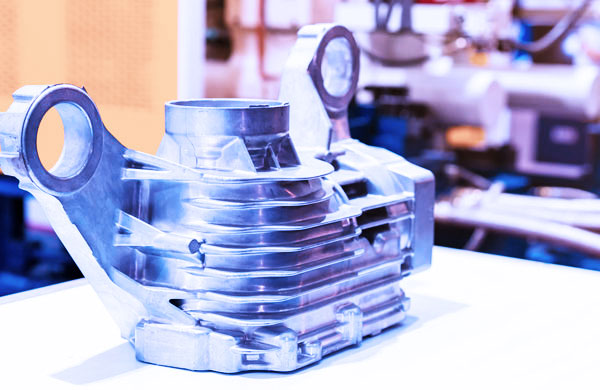Our Alcast Company Statements
Our Alcast Company Statements
Blog Article
Examine This Report on Alcast Company
Table of ContentsSome Known Incorrect Statements About Alcast Company Alcast Company for BeginnersAlcast Company Fundamentals ExplainedNot known Details About Alcast Company Alcast Company - QuestionsThe Best Guide To Alcast Company
The subtle difference lies in the chemical content. Chemical Contrast of Cast Aluminum Alloys Silicon promotes castability by minimizing the alloy's melting temperature and enhancing fluidity throughout spreading. It plays a critical function in permitting complex molds to be filled precisely. Additionally, silicon adds to the alloy's stamina and put on resistance, making it valuable in applications where durability is crucial, such as automotive components and engine elements.It also boosts the machinability of the alloy, making it less complicated to refine into finished items. By doing this, iron adds to the general workability of light weight aluminum alloys. Copper boosts electric conductivity, making it beneficial in electrical applications. It also boosts rust resistance and includes in the alloy's total stamina.
Manganese adds to the strength of light weight aluminum alloys and improves workability (Aluminum Casting). It is generally made use of in functioned light weight aluminum products like sheets, extrusions, and accounts. The existence of manganese aids in the alloy's formability and resistance to breaking during manufacture processes. Magnesium is a lightweight component that offers toughness and impact resistance to light weight aluminum alloys.
The Basic Principles Of Alcast Company
It allows the production of light-weight parts with excellent mechanical residential or commercial properties. Zinc boosts the castability of aluminum alloys and aids control the solidification procedure throughout spreading. It boosts the alloy's strength and firmness. It is typically found in applications where detailed shapes and great details are required, such as attractive spreadings and particular automotive components.

The key thermal conductivity, tensile strength, return strength, and prolongation differ. Select appropriate raw products according to the performance of the target item produced. Amongst the above alloys, A356 has the greatest thermal conductivity, and A380 and ADC12 have the cheapest. The tensile limit is the opposite. A360 has the very best return toughness and the highest possible prolongation price.
The 25-Second Trick For Alcast Company

In accuracy spreading, 6063 is fit for applications where detailed geometries and top quality surface coatings are extremely important. Instances include telecommunication enclosures, where the alloy's superior formability enables sleek and aesthetically pleasing designs while maintaining architectural honesty. In a similar way, in the Lights Solutions market, precision-cast 6063 elements create elegant and reliable lights components that need elaborate shapes and good thermal efficiency.
It brings about a better surface area coating and better deterioration resistance in A360. The A360 displays premium prolongation, making it optimal for complex and thin-walled elements. In precision spreading applications, A360 is appropriate for sectors such as Consumer Electronic Devices, Telecommunication, and Power Devices. Its boosted fluidity allows for intricate, high-precision parts like smart device housings and interaction gadget real estates.
The Single Strategy To Use For Alcast Company
Its one-of-a-kind residential properties make A360 a beneficial option for precision spreading in these sectors, boosting product resilience and quality. Aluminum Casting. click for source Light weight aluminum alloy 380, or A380, is a commonly used spreading alloy with a number of distinct attributes.
In accuracy spreading, light weight aluminum 413 shines in the Consumer Electronic Devices and Power Devices industries. This alloy's exceptional deterioration resistance makes it an excellent choice for outside applications, making certain long-lasting, resilient products in the pointed out sectors.
The Greatest Guide To Alcast Company
The aluminum alloy you pick will significantly affect both the casting procedure and the residential properties of the final item. Since of this, you should make your choice very carefully and take an educated approach.
Establishing the most suitable aluminum alloy for your application will certainly indicate weighing a large range of features. These comparative alloy characteristics comply with the North American Die Spreading Association's guidelines, and we have actually divided them right into two groups. The first group addresses alloy qualities that impact the manufacturing process. The 2nd covers characteristics influencing the buildings of the end product.
What Does Alcast Company Mean?
The alloy you choose for die spreading straight impacts a number of elements of the spreading process, like how very easy the alloy is to collaborate with and if it is susceptible to casting problems. Hot breaking, also referred to as solidification splitting, is a regular die casting problem for light weight aluminum alloys that can result in interior or surface-level tears or splits.
Particular aluminum alloys are extra prone to warm fracturing than others, and your selection must consider this. One more typical problem found in the die spreading of aluminum is die soldering, which is when the cast stays with the die wall surfaces and makes ejection challenging. It can harm both the cast and the die, so you must look for alloys with high anti-soldering residential or commercial properties.
Rust resistance, which is currently a noteworthy attribute of aluminum, can differ significantly from alloy to alloy and is a vital characteristic to think about depending upon the environmental conditions your product will certainly be exposed to (aluminum metal casting). Use resistance is one more residential or commercial property generally sought in light weight aluminum products and can set apart some alloys
Report this page